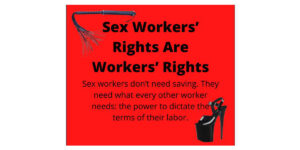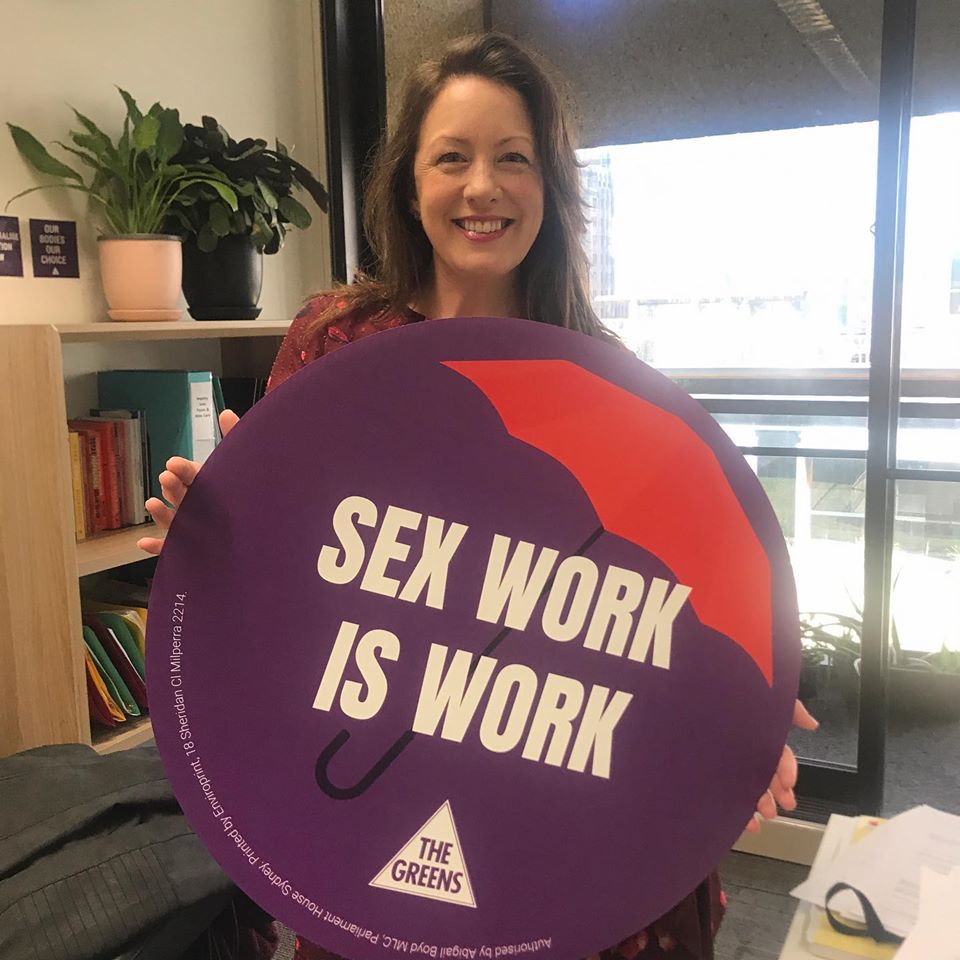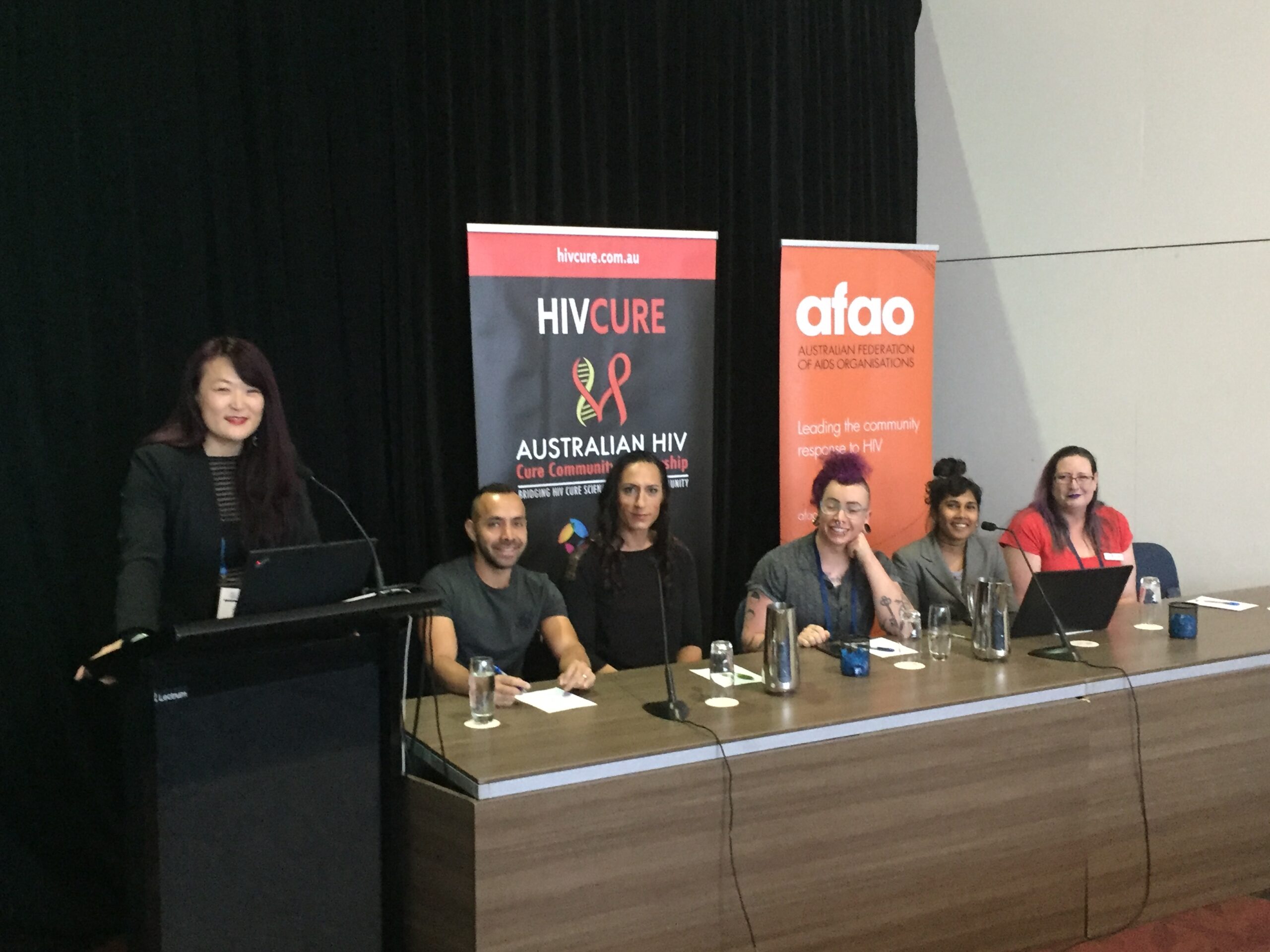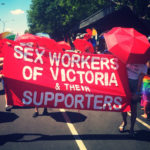NSW Greens Push for Laws to Prevent Discrimination Against Sex Workers

NSW became the first jurisdiction on the planet to decriminalise sex work back in 1995. And since that time, the local industry has been lauded around the globe as a best practice model that upholds the rights of workers, promotes their health and enhances their ability to seek justice.
However, as sex worker organisations have long asserted, the removal of harmful legal impediments hasn’t necessarily dispelled the stigma associated with the occupation, which means sex workers are routinely discriminated against on the basis of their job.
So, in order to better this situation, NSW Greens MLC Abigail Boyd last week introduced the Anti-Discrimination Amendment (Sex Workers) Bill 2020 (NSW) into state parliament. It seeks to ensure that sex workers aren’t subjected to bias both in and outside the workplace.

During her 5 August second reading speech on the bill, Boyd referred to a sex worker’s testimony, which outlined that telling someone about their occupation could at best, result in a “bunch of naff questions”, while at worst, it could lead someone to cut them off and “do something hostile”.
And on tabling the bill, Ms Boyd explained that the reason why these laws regarding prejudicial behaviour against the holder of an occupation will be inserted into the Anti-Discrimination Act 1997 (NSW) is that this state has “a lack of occupational discrimination legislation”.
Upholding sex worker rights
“Since 1995, we’ve seen a huge improvement in the health and wellbeing of sex workers and their clients,” Ms Boyd said. “But the stigma around those who choose to work in this industry remains, and that’s getting in the way of upholding the basic human rights of sex workers.”
“No one should face discrimination inside or outside of the workplace, no matter their chosen profession,” she told Sydney Criminal Lawyers.
“In NSW, we established very clearly that sex work is work – it’s time that community attitudes caught up.”
The Greens MLC explained that her private members bill was developed in collaboration with the nation’s peak sex worker body Scarlet Alliance Australian Sex Workers Association, SWOP NSW (Sex Worker Outreach Project) and Touching Base.
According to Boyd, not only would the laws remove barriers to sex workers accessing accommodation or applying for services, but it would also lead to it being unnecessary for them to hide their occupation from future employers, and it would open avenues to seeking legal recourse.
“This is a small, but necessary, step in the right direction,” Ms Boyd continued. “There are, of course, many more changes that are required – both formal changes in the law and, more broadly speaking, cultural changes in our society.”
Sex work is work
The passing of the Disorderly Houses Amendment Act 1995 (NSW) saw this state become the first in the world to decriminalise the adult sex industry.
And over recent years, human rights organisation Amnesty International has recognised decriminalising the sex work industry as best practice.
But, as Scarlet Alliance CEO Jules Kim points out the decriminalised system hasn’t resulted in the elimination of the stigma associated with the profession, and sex workers “experience discrimination on a daily basis at the systemic level and also at a personal level”.

The sex worker anti-discrimination bill seeks to address this by inserting part 4H into the Anti-Discrimination Act, which mirrors the broader framework of that legislation in providing fifteen distinct provisions to make discrimination against sex workers unlawful in various contexts.
Some key areas include proposed section 50AI, which makes it unlawful for an authority or a body empowered to confer, renew or extend an authorisation or a qualification” to discriminate against sex workers, which would prevent local council bias in terms of development approvals.
Proposed section 50AL prevents discrimination against sex workers when it comes to the provision of goods and services. Both Boyd and Kim outlined that those working in the industry can often face prejudice when applying for financial services.
Another key measure falls under proposed section 50AM, which makes it illegal to discriminate in terms of accommodation.
SWOP NSW has pointed out that prejudice in the housing market means revealing oneself to be a sex worker can make one more susceptible to experiencing homelessness.
And proposed section 50AO makes it unlawful to incite hatred, serious contempt or severe ridicule against a sex worker via a public act, which is defined as any form of communication in public, any other public conduct, or via the distribution of materials.
Peer approval
“This is a really great bill,” Ms Kim said. “It was developed in consultation with sex workers throughout.”
“It recognises sex work and sex worker as protected attributes, which is what we’ve been advocating for, because, even in states where anti-discrimination provisions are in place, they have been largely inaccessible for sex workers,” she explained.
The sex worker advocate made clear that despite 25 years of decriminalisation in this state, stigma and discrimination are still prevalent. And she puts that down to a number of reasons, including “a lot of misrepresentation around sex work that happens in the media and public discourses”.
Another key reason why sex workers continue to be subjected to discrimination in NSW, Kim further posited, is the inconsistency of laws across Australia. In most other jurisdictions, the occupation remains criminalised at least in part or, as is the case in South Australia, it’s completely illegal.
Despite a sustained push for the decriminalisation of the sex work industry in South Australia, a bill that would have made that happen was voted down last November. While, in that same month, the Northern Territory Legislative Council decriminalised the entire industry in its jurisdiction.
“The anti-discrimination laws will provide a really important message in demonstrating that the government considers discrimination against sex workers on the basis of their occupation unacceptable,” Kim concluded.
“And it will also importantly let sex workers know that with the discrimination they do face there’s an avenue for redress.”







